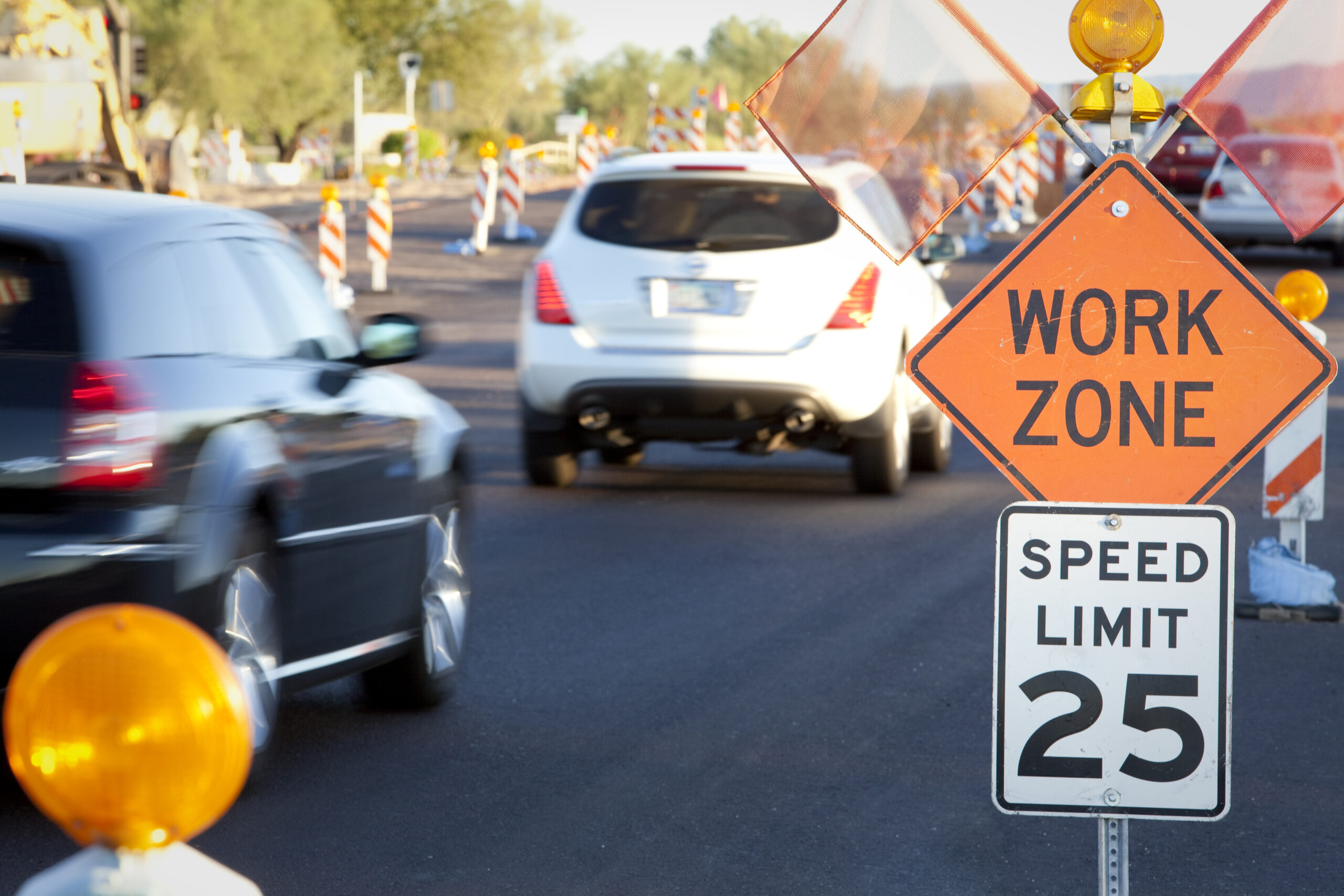
Along with usual fun sunny day activities, sunshine also brings road repairs and construction along the Lower Mainland’s streets and highways. Car accidents and motor-vehicle accidents in construction zones happen frequently, putting drivers and construction workers at risk for serious construction-zone car-accident injuries.
The safety of road workers, which also includes other attendant workers such as tow-truck drivers, municipal workers, utility workers, emergency workers and enforcement personnel, is a huge priority. In the last ten years, over 240 road workers were hit by a car while doing their job, and 15 of them were killed. There are now a number of laws and awareness campaigns designed to keep them out of harm’s way.
Respect the Cone Zone and Avoid Car Accidents and Car Injuries
Slowing down in the cone zone is one such campaign. It has been in effect for a number of years, and its goal is to make drivers aware of the cones, and the fact that their presence on the road indicates that there are road workers close by. The ConeZoneBC campaign asks that drivers do three things:
1. Slow down when you see the cones on the road:
- Plan your route and allow extra travel time;
- Expect the unexpected and don’t tailgate;
- Slow down to posted speed limits and pay attention; and
- Allow extra space between your vehicle and the one in front of you.
2. Be more aware when you are driving, especially in the presence of the cones:
- Never use a cell phone or text while driving;
- Follow sign and flag directions; and
- Get to know the work-zone signs.
3. Understand that road workers and other people who work in the area are fathers, mothers, friends, etc., and their safety is just as important as anyone else’s. You can show your respect by:
- Making eye contact;
- Keeping your cool and being patient; and
- Slowing down even if you don’t see anyone working. Hazards such as traffic shifts or lane reductions may appear suddenly.
What Causes Car Accidents and Personal Injuries in Construction Zones
Construction sites and road repairs happen frequently during the warmer months in British Columbia. Construction projects have a specific written plan and should be followed by city workers and construction contractors. However, when the plan is not followed, both drivers and construction workers are exposed to a higher risk of personal injury in motor-vehicle accidents.
Construction zones are hazardous in nature and car accidents can occur due to:
- Inadequate or improper signage before a construction zone;
- Unsafe road conditions due to road repairs, heavy equipment and construction debris;
- Unsafe turns, road blockages and lane closures before and after a construction zone; and
- Failure to protect road workers.
Slow Down Move Over
To further protect road workers of all types, the “Slow Down, Move Over” law came into effect last year. Anytime drivers see a vehicle stopped on the side of the road with flashing red, blue or yellow lights, they must slow down significantly (70 km/hr in an 80-km/hr zone, and 40 km/hr in any zone less than 80 km/hr), and if possible, move to an outside lane in order to give road workers an extra buffer of safety. Failing to do so can result in a $173 traffic-violation fine, and three penalty points on your license.
Getting a pricey ticket and three points on your ICBC insurance can hurt, but not as much as causing a fatal accident, or losing a friend or family member to dangerous driving. Respect the cone zone and don’t forget to slow down and move over whenever you see crews working on the side of the road.
What to Do if You Have Sustained a Personal Injury in a Construction-Zone Car Accident
If you sustained a personal injury from a car accident, contact the personal-injury lawyers at Warnett Hallen LLP. We represent car accident victims throughout British Columbia and will fight to ensure your rights are protected.
Call today at 604.737.3300 for a free consultation. We are available 24/7, and you never pay a cent unless we help you win or settle a case.

